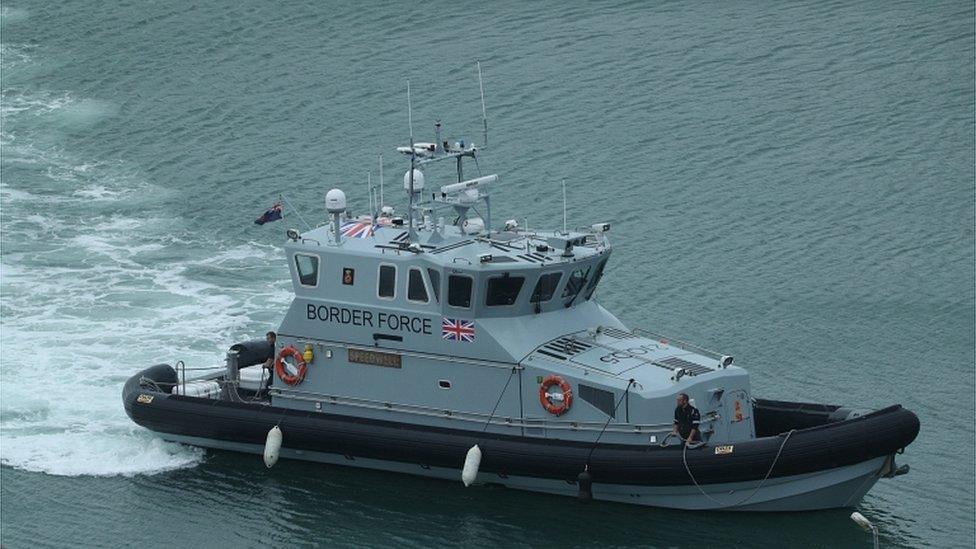Coronavirus: Home Office staff give face masks to migrants
- Published
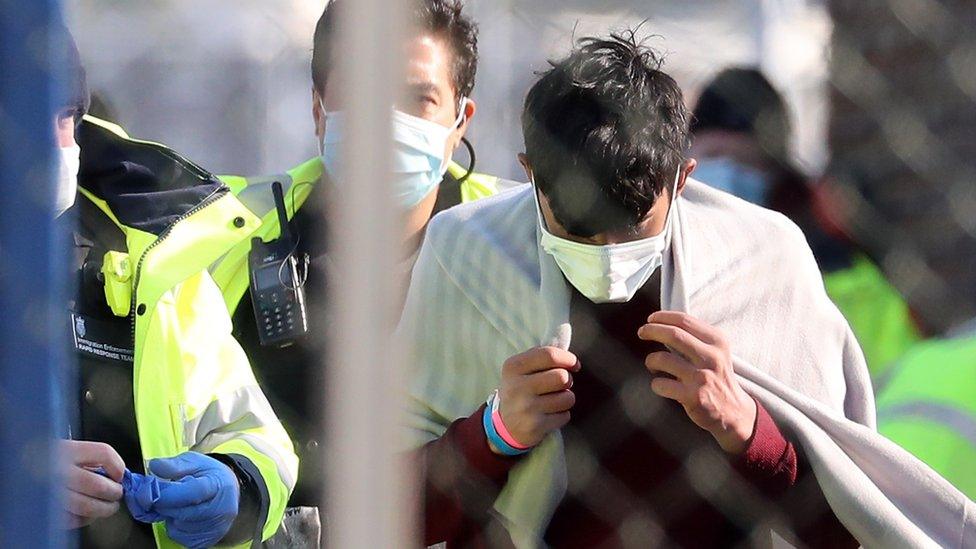
Immigration Enforcement officers and a suspected migrant were pictured wearing face masks
Home Office staff have been seen fitting face masks to suspected migrants at Dover.
Pictures showed Immigration Enforcement officers, themselves wearing masks and gloves, processing them at the port.
A total of 25 men and four women in three vessels arrived off the Kent coast between 04:30 and 12:00 BST.
The Home Office said it was "standard practice" for migrants who arrive on small boats to be given face masks, fitted by individuals themselves.
April has been the busiest month on record for small boat crossings, with more than 350 people reaching England.
The Home Office said the coronavirus pandemic was having "no impact on our operational response" to crossings.
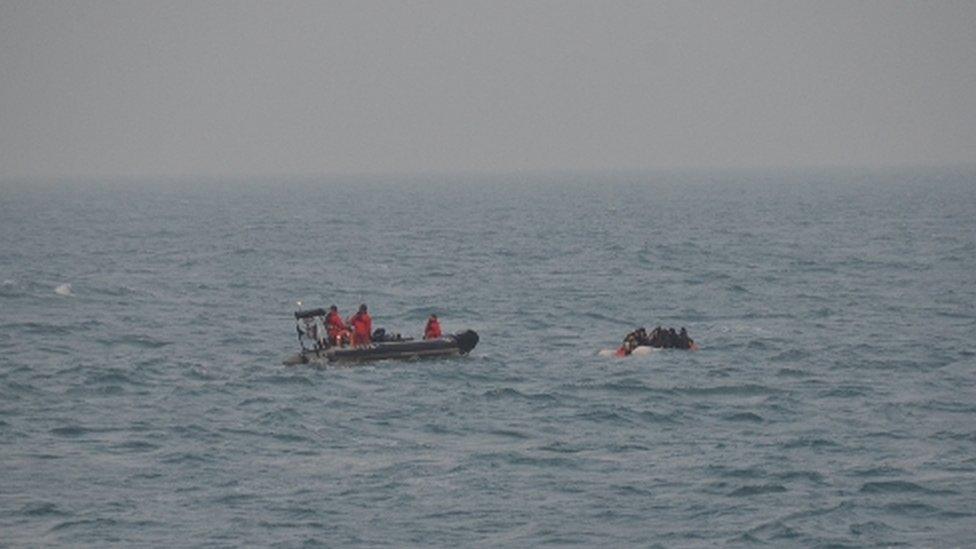
French authorities rescued 44 people from three stricken boats
In the first incident, at about 04:30 BST, a Border Force vessel intercepted a rigid-hulled inflatable boat (RHIB) which was carrying a group of 12 men and four women, who presented themselves as Iranian, the Home Office said.
Ten men were found in another RHIB at about 04:55 BST. They claimed to be from Iran, Iraq and Kuwait.
In the third incident, at about midday, Border Force was notified of three men coming ashore in St Margarets-at-Cliff. Kent Police detained three migrants who said they were Iranian.
All the suspected migrants were transferred to immigration officials for processing.
'Infrequent phenomenon'
More than 800 people have crossed the Channel in small boats this year, including 29 in a single vessel on Easter Sunday.
French authorities rescued 44 migrants - including eight children - from three boats that got into difficulty in the early hours of Friday.
Governments on both sides of the Channel last year pledged to make crossings an "infrequent phenomenon" by the Spring.
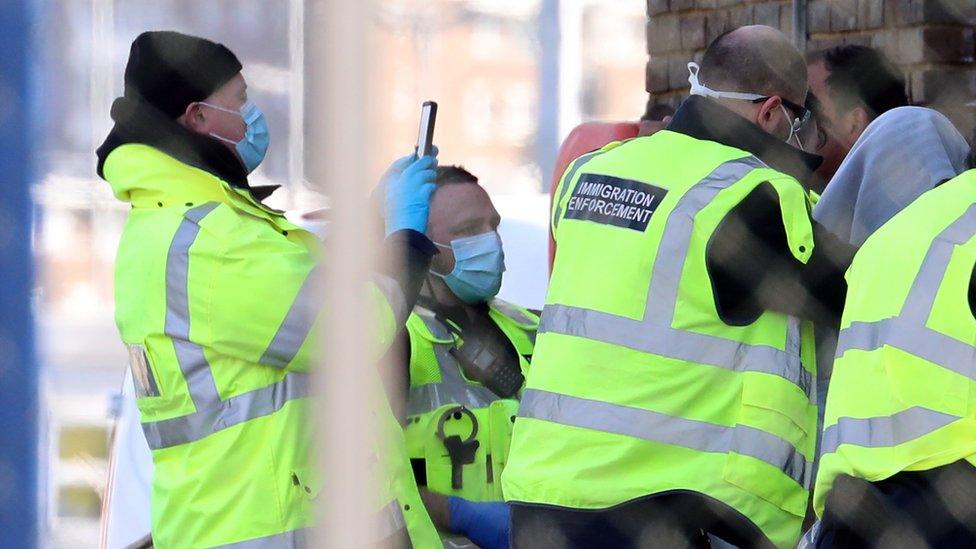
The Home Office said coronavirus has not affected its response to Channel crossings
Volunteers say migrants living in makeshift camps in northern France are dangerously exposed to coronavirus.
Clare Moseley, of Care4Calais, said she was "very worried" about the potential for the virus to spread, with migrants living in "overcrowded" conditions, without access to clean water to wash their hands.
"That's the worst case scenario," she said.
She added conditions in the camps were "the worst I've ever seen" as many charities have "pulled out" as a result of the pandemic.
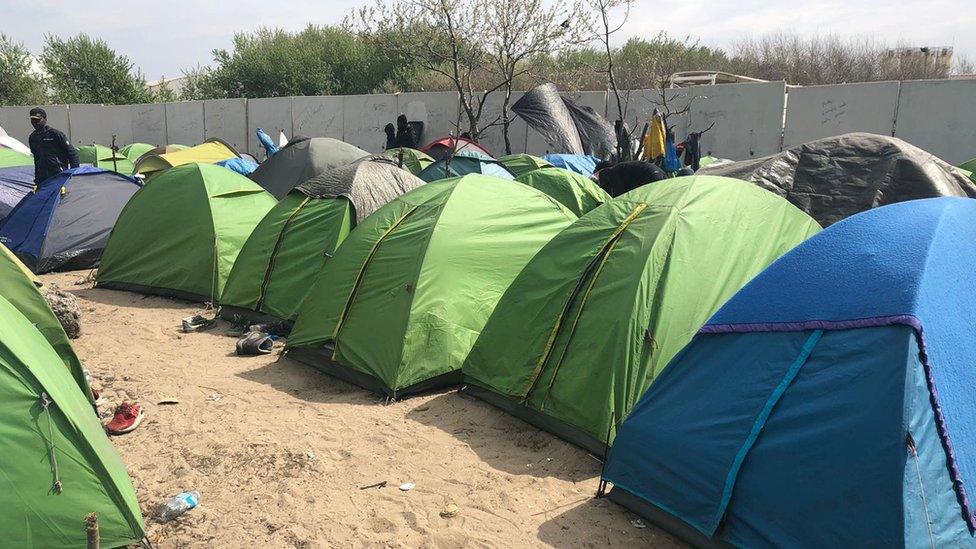
Volunteers say migrants are living in overcrowded conditions with no running water
Remaining volunteers, who routinely wear face masks and gloves, are focused on meeting a shortage of food and water, meaning toiletries and clean clothes are not being delivered, she said.
As a result, she said personal hygiene in the camps had deteriorated.
"We are seeing people who haven't changed clothes in weeks," she said.
Nine people have so far been taken away by local authorities and placed in isolation after displaying symptoms of Covid-19, Ms Moseley added.

A SIMPLE GUIDE: How do I protect myself?
AVOIDING CONTACT: The rules on self-isolation and exercise
HOPE AND LOSS: Your coronavirus stories
LOOK-UP TOOL: Check cases in your area
VIDEO: The 20-second hand wash

- Published20 January 2020
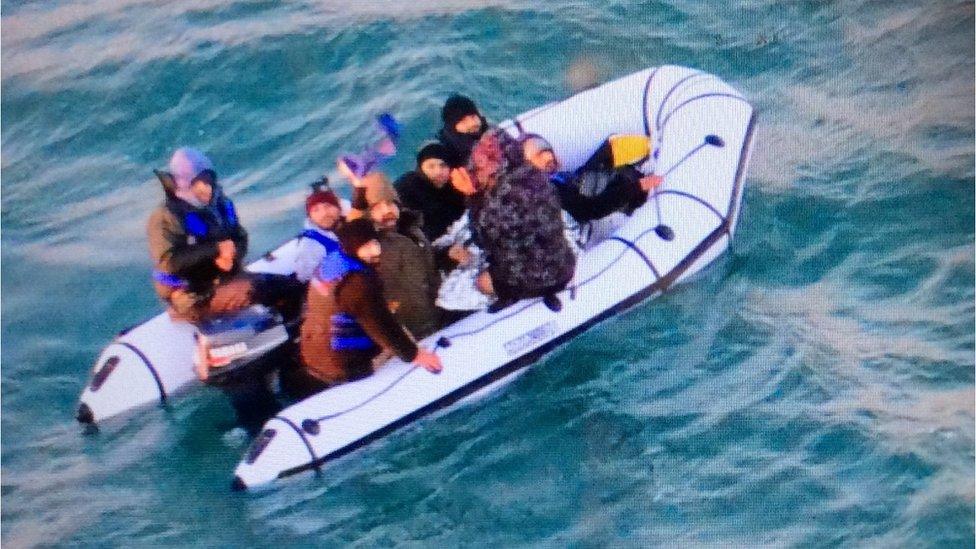
- Published20 December 2019
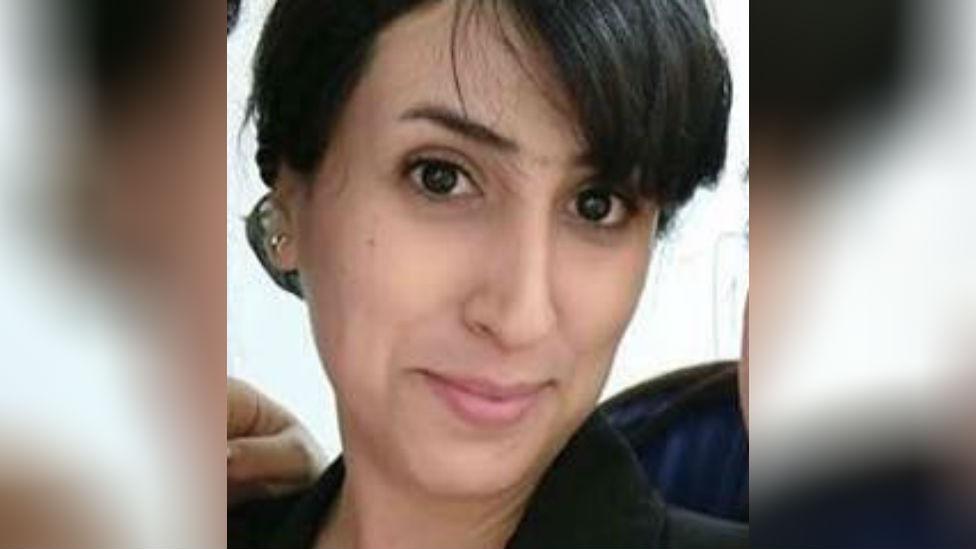
- Published12 April 2020
